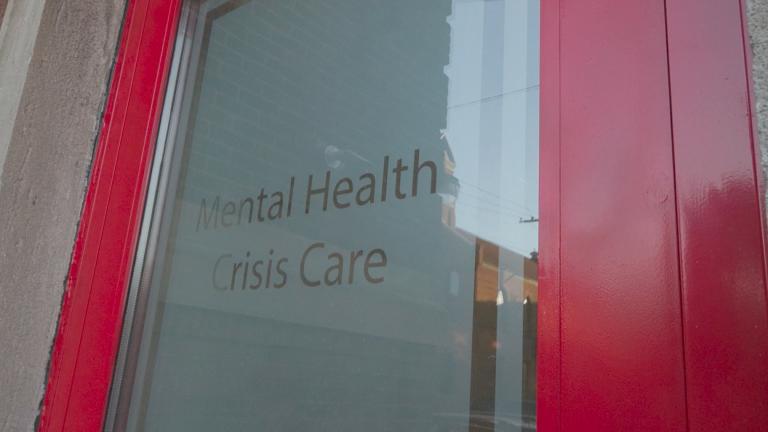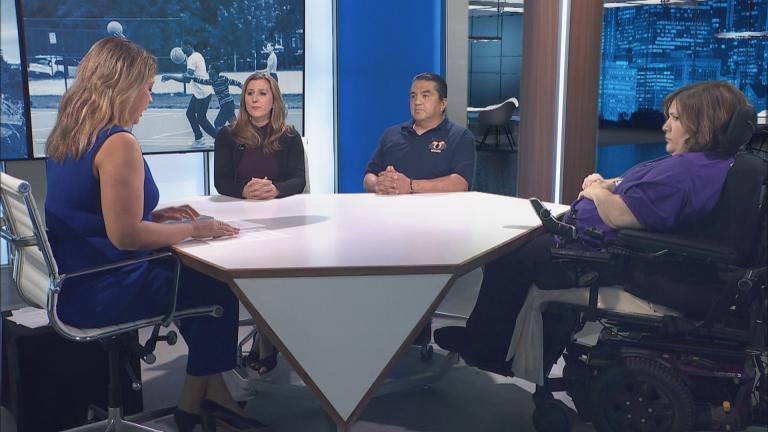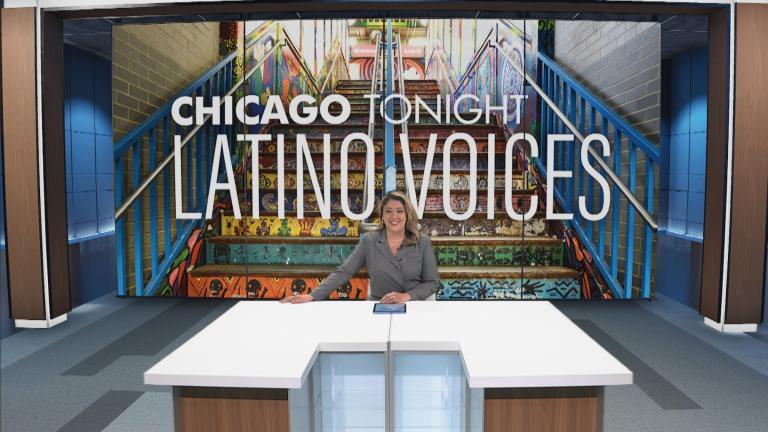The Chicago Teachers Union and advocacy groups are protesting budget cuts they say their schools are facing after Chicago Public Schools released individual school budgets with more than 40% of schools expected to see fewer dollars.
District data shows the average increase for schools receiving more funding was about $330,000. The average cut to schools losing funding was over $220,000 with 177 schools losing at least $100,000. These cuts would come on the heels of deep enrollment declines across the system. Nearly 25,000 students have left CPS since 2020, and more than 11,000 of those students are Latino.
Shields Middle School in Brighton Park is budgeted to lose about $212,000 for core instruction and another $175,000 for special education. Andrea Ortiz, director of organizing at Brighton Park Neighborhood Council, said news of these cuts sparked an outcry in her community.
“Thinking about this community that has been hardest hit by this pandemic, a community that has seen a high level of violence — what we want to do is set up our schools for success and that doesn’t look like cutting our budgets.” said Ortiz. “We should be investing in essential trauma-informed resources, more bilingual, and more special education. And these budget cuts are inequitable, they’re unsustainable, and Black and Latino communities are carrying the burden.”
CPS’ budgeting approach funds schools based on enrollment, which is why schools like Shields that have seen enrollment declines are slated for cuts. But Kids First Chicago chief of policy Hal Woods says using federal COVID-19 recovery funds remains an option for maintaining funding levels at affected schools.
“There was about $1.6 billion of unspent, at this point, federal dollars that came to CPS through the recovery funds … so that is one option, certainly thinking about how to use those unspent funds to cushion the enrollment declines that many schools across our city are seeing,” Woods said.
Woods said he does not find CPS’ engagement with parents and students on funding and budgeting to be sufficient.
“I think there has not been, frankly, a tremendous amount of engagement with families about those ESSER (Elementary and Secondary School Emergency Relief) funds,” Woods said. “I would really look to the district to be transparent about the information about where those funds sit, where those funds are committed … Let’s talk to our educators, our families, our parents, our students about where their needs are so we can program the rest of those federal funds. Because the worst thing that could happen is we have to give a portion of those funds back because they don’t get spent by the deadline next summer.”
CPS has said the challenge presented is that using one-time funds such as the recovery money to fund permanent positions would not prevent those cuts from happening once the funds run out.
Chicago Public Schools CEO Pedro Martinez said the school system is shifting its budgeting model away from student-based funding.
“We need to have enough teachers to provide all essential services, and this includes reasonable class sizes, making sure that we have intervention teachers that are freed up for children that need help,” Martinez said. “Making sure that we have more counselors for social emotional support, making sure that we don’t have to continue to split classrooms.”
“The other thing we heard was we need to make sure that we have access to the arts across every single school because some schools are rich in the arts and some were not,” Martinez continued. “So … we’re investing over $300 million and we’re still adding, it’s going to probably be closer to $400 to $500 million so that every single school without exception, has those resources to accomplish those goals. No schools should be cutting back on bilingual programs. No schools should be cutting back on any essential services.”
Martinez said he does regret the level of engagement with communities to date on the new budget.
“I wish we could have reached out, for example, to the neighborhood associations, to the different groups, to share with you these specific details. The adjustments that are being made to schools though are mainly in areas where we just don’t have children in the building,” he said. “The real question is, do we keep these resources for the following year? And the problem is that in the same neighborhood, I will have another school that has all the preschool children or has all the diverse learners. And then how do I answer to those parents? Your class sizes are bigger, not because your children have less needs, but this is the way we do budgeting.”
Ortiz pointed to past patterns of inequitable funding that she believes are being repeated in this budget proposal.
“If you look at the 40% of the schools that are receiving these cuts, it’s in predominantly Black and low-income communities compared to the other schools like Mount Greenwood Elementary or Waters Elementary, that are receiving an increase — predominantly white schools,” Andrea Ortiz said. “Our Black and brown communities deserve the same investment that we’re seeing in other communities.”
But Martinez maintained that the proposed budget will fairly distribute resources to CPS students.
“We’re spending more on a per-student basis than ever before. We’re spending more for our Latinx and our Black students more than ever before. And again, the first time, we have foundational resources to meet the needs of our schools. There [are] no essential services being cut,” Martinez said. “The conversation will continue with the community about how do we make sure that we make these resources sustainable? How do we provide them over multiple years? We can always front load them a lot more. The challenge with that then is we create sustainability issues and we create inequities in schools when we allow resources to stay when we don’t have children. And that is 100% driving any adjustments in budgets.”








